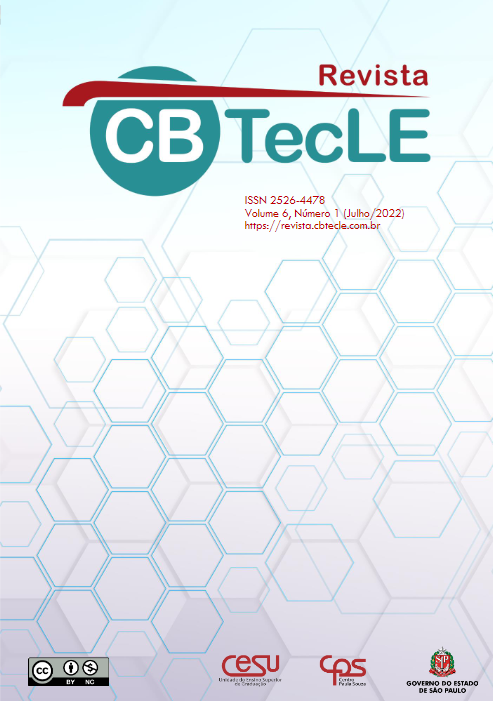MODERN BOARD GAMES IN THE PORTUGUESE LANGUAGE TEACHING AND LEARNING: PRACTICES AND RESULTS
Keywords:
Jogos de Tabuleiro Modernos, Ensino-Aprendizagem, Língua Portuguesa, Professor, Metodologias AtivasAbstract
This article has the point to present the effects of the teaching of grammatical contents provided by the National Common Curriculum Base (BNCC) for the 6th. and 7th. of elementary school through modern board games. The methodology adopted resulted in the adaptation of games with application in the classroom. It was observed that modern board games have positive value in teaching-learning of students, contributing to the academic process in a challenging and fun way. The role of the teacher gains prominence, by promoting an environment conducive to the student's confidence and individualized look, providing space for interaction and protagonism. Therefore, teaching through modern board games is important for individual and collective development, and it is up to the teacher, most often adapt or create games, to achieve a determined end.
References
BRASIL. Ministério da Educação. Base Nacional Comum Curricular. Brasília, 2018.
BOLLER, Sharon; KAPP, Karl. Jogar para Aprender: tudo o que você precisa saber sobre o design de jogos de aprendizagem eficazes. São Paulo: DVS Editora. 2018.
COSTA, Leandro Demenciano. O que os jogos de entretenimento têm que os educativos não tem: 7 princípios para projetar jogos educativos eficientes. Ed. PUC RIO: Rio de Janeiro, 2010.
CSIKSZENTMIHALYI, Mihaly. Flow: The psychology of optimal experience. Harper Collins Publishers: New York, 1990.
_____. Educação Humanista Inovadora. Disponível: Acesso em: 17 de jan. 2022.
HUIZINGA, Johan. Homo Ludens. 4. Ed. Rev.2. São Paulo: Ed. Perspectiva, 2000.
LA CARRETTA, Marcelo. Como fazer jogos de tabuleiro: Manual prático. Curitiba: Appris, 2018.
MORAN, José. Mudando a educação com metodologias ativas. In SOUZA, Carlos Alberto; MORALES, Ofélia E. T. (org). Convergências Midiáticas, Educação e Cidadania: aproximação jovens. Vol. II, 2015. p.15-35
MORAN, José. Metodologias ativas para uma aprendizagem mais profunda. In: MORAN, José; BARICH, Lilian (org.). Metodologias ativas para uma educação inovadora: Uma abordagem teórico-prática. Porto Alegre: Penso, 2018.
MORAN, José M. A educação que desejamos: Novos desafios e como chegar lá. Campinas: Papiricus, 2007.
MCGONIGAL, Jane. A realidade em jogo. Ed.1. Editora Best Seller: Rio de Janeiro, 2017.
NOVAK, J. D; GOWIN, D. B. Aprender a aprender. 1 ed. Lisboa: Plátano Edições Técnicas. 1984.



